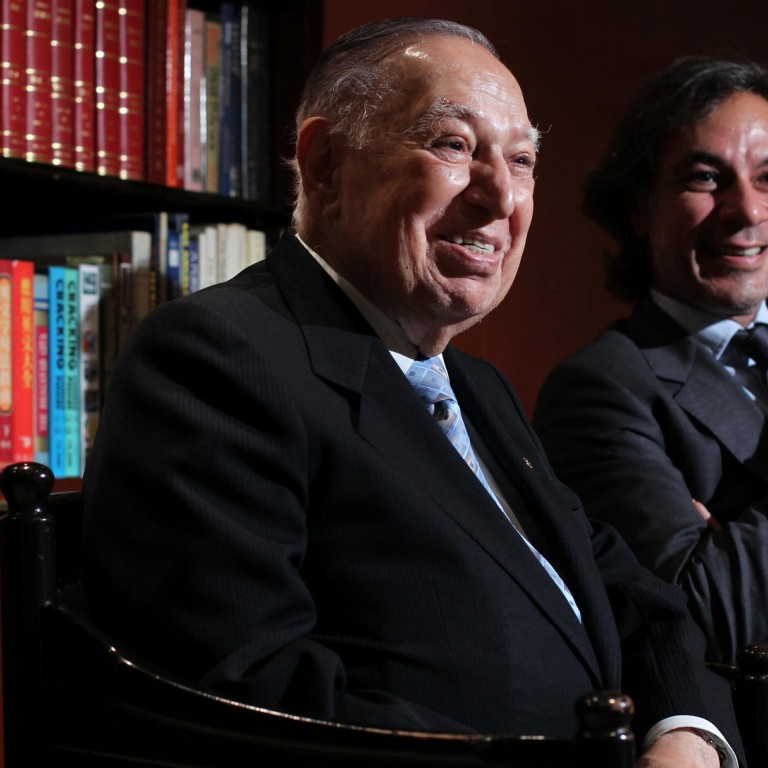
Keep the faith, hotelier Hari Harilela tells Hongkongers in wake of tensions
Hotelier believes that tolerance is the only way to ease tensions between the city and mainland
Prominent hotelier Hari Harilela, who built his fortune by making critical investments during the 1960s riots, has urged Hongkongers to keep faith with their home as the city experiences tension and uncertainty about its future.
Harilela, often dubbed the richest Indian in the city, has risen from being a child born to an impoverished family to one of the best-known investors in the region's hotel industry.
Commenting on the recent political conflict and tension between Hong Kong and the mainland, the 91-year-old entrepreneur and philanthropist said that only tolerance could bring people together and that understanding was a prerequisite for good solutions to disputes.
Admitting, in an exclusive interview with the , that he spoke from a business point of view, Harilela also said Hongkongers should consider the reasons for the city's thriving economy and be grateful for its success and its proximity to the mainland.
His son, Aron, said the prevalence of protests in the city was however rooted in the fact that people were not well represented in the political system. He called for universal suffrage, but also expressed reservations about a one-man, one-vote system that could not narrow the scope of candidates.
"Where is our home? Our home is in Hong Kong," the elder Harilela said in a wide-ranging interview in his Tsim Sha Tsui office, recounting personal stories, life challenges and his views on how to keep families together in a fast-changing world.
Founded with his two brothers Peter and George, the Harilela Group first focused on textiles but expanded into capital-intensive real estate when political unrest gripped the city.
"In the 1967 riots, everybody was turning away. They sold their properties," he said. He did not agree. "I said 'no'. We had made our home here. We must have faith." It was this gamble, based on a gut feeling, that helped to pave the way for the group's growth.
Harilela said that the city's businessmen had always been good at building bridges and mutual trust, adding that this culture should continue to develop in order for the city to prevail amid keen competition and globalisation.
"The culture of Hong Kong is business. Vienna has a music culture. Hong Kong means business," he said.
Asked about mistrust towards Chief Executive Leung Chun-ying, Harilela said wounds took time to heal. "Everyone who takes the high job wants to do something good for Hong Kong; he's not going to sit back and do nothing. We have to take time."
Saying that he now refrains from speaking about politics, the former adviser to Beijing on Hong Kong affairs said, however, that Hong Kong could have freedom, but with an understanding that it was "freedom under China".
"We are part of China. No matter how we want freedom, it's freedom under China. When the British were here, we lived under the British. Their rule was a bit stricter," Harilela said.
Aron Harilela attributed an increasing number of protests to disenfranchisement arising from lack of political representation and difficulty in securing jobs and homes.
"People don't feel represented, whether in Legco and the District Council - that's why there are protests in Hong Kong, from small to big issues," said the chief executive of Harilela Hotels and member of general committee of the General Chamber of Commerce. "There is no doubt we need political reform."
But he said that he supported the idea of narrowing the scope of candidates through such means as a primary election and increasing the link of the chief executive to political parties.
